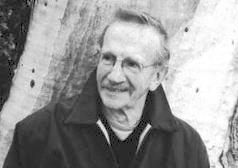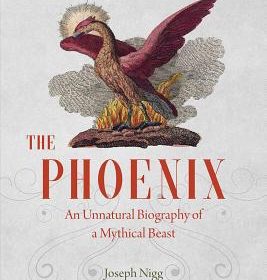-

Adios, Galway Kinnell
Galway Kinnell Galway Kinnell, who died on Tuesday, was perhaps the second or third living poet I ever met. He had been invited to read at the University of Northern Colorado, where I was a student. I was 20. I had already witnessed the deep, wild energies of Robert Bly in performance, but based on reading Kinnell’s Body Rags I knew not to expect that kind of splash. And Kinnell’s wildness did prove to be of a quieter kind. His sensibility was resolutely earthbound, images were tactile, the the music thick and twisty like a Celtic knot. He did not stimulate; he involved.Read More
-

MacNeice Contemplates the 99 Percent
Louis MacNeice It was something of shock to encounter the 99 percent—not the phrase, but the demographic—deeply considered in the third section of Louis MacNeice’s long poem Autumn Journal (see Katy Evans-Bush’s excellent essay about it here), published in 1938. I had read the poem in my callow youth, but my ignorance of Britain between the wars was like a featureless river stone upon which the poem could simply not get a firm grip. I remembered it mostly for its tone—personal, notational, meditative, acerbic and humorous by turns—and didn’t appreciate exactly what MacNeice was trying to tell me.Read More
-

New U.S. Poet Laureate: Philip Levine
Philip Levine, U. S. Poet Laureate The New York Times reports that Philip Levine has been named PLOTUS. It’s a well-deserved honor. Levine is one of those poets who is so good, so consistently good, that he’s somewhat taken for granted. He’s also one of those poets whose late work is stronger and wiser than anything he’s done before. He’s become especially adept at multi-dimensional narratives condensed into small spaces, with most of the connectives prose would require removed, so that everything seems to stand before us as a whole, somehow.Read More
-

For Whom Do Poets Speak?
Linh Dinh is right, of course, in this powerful brief statement on poetics, which takes as its touchstone a powerful stanza by Czeslaw Milosz. The question is why. Why do we (poets, yes, but citizens as well of a system—there are no nations, really, not anymore—designed to maintain the hegemony of a mendacious, thieving elite) … why do we tolerate and even promote poetry that is superficial, trite, and purposely “uncreative,” utterly lacking in scope and depth? Why do we write about what we wish rather than what we know? I’m not talking about politics, per se.Read More
-

Poetry Qua Money
Thanks once again to Jilly Dybka‘s Poetry Hut Blog for the link to this brief meditation by Writer’s Market and Poet’s Market editor Robert Lee Brewer on the perennial question, “How much money does a poet make?” Brewer correctly answers “peanuts,” though it’s likely to be less: seeds and stems at best. “Bottom line: There’s no money in poetry,” he writes.Read More
-

Open and Closed, Part 3
Evidently Adam Fieled took offense at my earlier addition to our ongoing discussion about so-called School of Quietude poets vs. so-called post-avant poets. I’ve tendered an apology in his comment stream, because I surely didn’t mean to hurt his feelings. As for my failures in the substance of our discussion, he’s right in calling me on the fact that I did not provide him with examples of poems from “my tradition” that I would be “willing to vouch for.” I promised him I would begin doing so, and this is the first post in that process.Read More
-

The Great Debate
No, not Obama v. McCain, but this (a repost of a November 2007 post by Bill Knott on his blog today [links not in the original]): Randall Jarrell, writing in 1941: ”Realizing that the best poetry of the [1920s] was too inaccessible, we can will our poetry into accessibility—but how much poetry will be left when we finish? Our political or humanitarian interests may make us wish to make our poetry accessible to large groups . . . . “ The debate—whether one should strive to make one’s verse accessible—still rages of course.Read More
-

Little Somethings
A little something worth remembering, from someone named Perie Longo … “The Inuit root word anerca means both to breathe and to make poetry.” … and a little something worth forgetting from Charles Bernstein.Read More
-

The Poetic-Critical Complex
This is an expansion of my response to a comment from Reginald Shepherd regarding one of my posts below: I’ve never developed a settled opinion on the relationship between poetic complexity and poetic durability. Do Shakespeare’s sonnets trump Michael Drayton’s because they are more complex? (They are more complex both conceptually and rhetorically.) And if so, are we to value Conrad Aiken above William Carlos Williams, for example, or Louis Zukofsky above Philip Levine? These are ultimately questions involving The Canon and the people in charge of it. I do not mean you and me, of course.Read More


 Joseph Hutchison, Colorado Poet Laureate 2014-2019, has published 20 collections of poems and edited or co-edited three poetry anthologies. He currently directs two master’s-level programs for University College at the University of Denver: Professional Creative Writing and Arts & Culture Management. Joe lives with his wife, Melody Madonna, in the mountains southwest of Denver, Colorado, the city where he was born.
Joseph Hutchison, Colorado Poet Laureate 2014-2019, has published 20 collections of poems and edited or co-edited three poetry anthologies. He currently directs two master’s-level programs for University College at the University of Denver: Professional Creative Writing and Arts & Culture Management. Joe lives with his wife, Melody Madonna, in the mountains southwest of Denver, Colorado, the city where he was born. 









